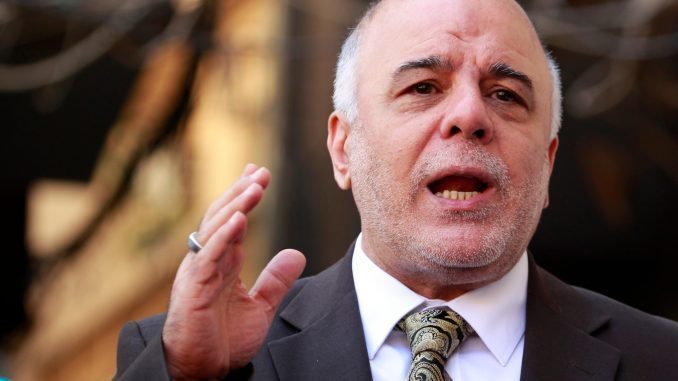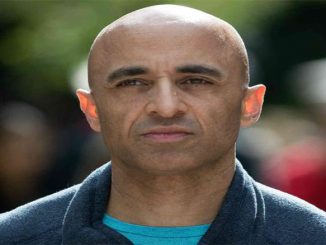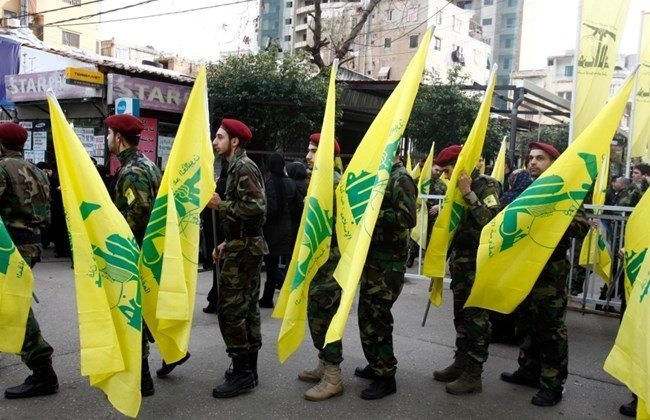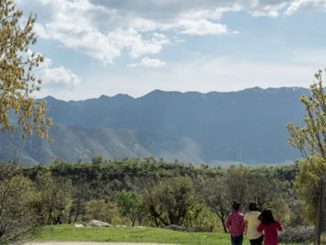
Iraq said it seized money that was sent by Qatar as a ransom money this month to secure the release of 26 Qataris abducted in Iraq a year and a half ago by unidentified gunmen, but Qatar denied the news and said the money was sent to the Iraqi government.
After long months of siege, bombing, and starvation the rebels were forced to sign a new deal with the Assad regime, which includes lifting the siege on two towns in rural Damascus in exchange for evacuating their citizens to northern Syria and allowing two rebel-besieged towns to be evacuated too.
A senior Arab diplomat in Qatar involved in the talks said that Iranian officials and Ahrar al-Sham held discussions about the four-towns swap in Qatar when Iran’s foreign minister visited Doha in March.
Those discussions also involved the freeing of 26 Qatari hostages held by unidentified gunmen in Iraq, he said.
The group of hunters, believed to include one or several prominent members of the Qatari royal family, were kidnapped in mid-December 2015 during a hunting trip in the Muthanna governorate of southern Iraq.
They were taken from a desert camp for falcon hunters in southern Iraq in Muthanna province, some 370km southeast of the Iraqi capital.
Ransom money seized
None of the stakeholders would discuss ransom payments, or publicly admit that money had changed hands for the deal to go ahead. However, Hezbollah is known to have put a price on the return of its captives, and both Syrian militias had agreed to facilitate the exodus from Foua and Kefraya after discussions with Qatari brokers.
Officials in Baghdad said a Qatari plane that arrived in Baghdad on Saturday was carrying large bags that Qatari government officials refused to allow to be searched. Iraqi officials said they believed that the bags had contained cash that was used to finalize the release.
When the bags were opened, it was discovered that they contained hundreds of millions of dollars and euros in cash worth a total of $500m, said an Iraqi source.
Iraqi Prime Minister Haider al-Abadi said on Tuesday authorities had seized suitcases containing hundreds of millions of dollars on a private Qatari jet that landed in Baghdad. He suggested the funds were part of a deal to free the hostages without Baghdad’s approval.
Abadi angrily criticized Qatar’s decision to send money.
“Sending the cash in this way is wrong … legally wrong. What would happen if hundreds of millions of dollars went to the armed groups? Is this acceptable?” he said at a news briefing.
Qatar’s foreign minister, Sheikh Mohammed bin Abdulrahman al-Thani, told Doha-based Al Jazeera late on Wednesday that Baghdad had been consulted about the money he said was sent “to support the authorities in the release of Qatari abductees”.
“Qatar has provided funds to Iraq in an official, clear and public manner,” Sheikh Mohammed said. “Qatar did not deal with armed groups outside the authority of the (Iraqi) state.”
Abadi further hinted at the intervention of militias and regional powers when he said: “third parties intervened strongly, some from the highest levels and others threatened to use armed force. The Qatari envoy and the Qatari ambassador who had arrived on the plane had a bitter dispute over what had gone wrong.”
What is not clear is why the kidnappers released their hostages on 21 April, though they had not yet received the ransom, unless they were confident that once it was in Baghdad airport it was as good as in their hands or replacement funds had been sent by Qatar. Abadi says that the Qataris had been led to believe that “the sponsors of the kidnappers had effective control of the airport and of the security forces there.”
Abadi is clearly angry at the way in which Iraq has been caught up in the complicated maneuvers of foreign powers like Qatar, Iran, Lebanese Hezbollah and a variety of Iraqi and Syrian private armies. He says that “allowing [the Qataris] to deliver big money to armed groups in Iraq, and perhaps also to terrorist groups is to fuel the war.”
The affair has not ended since the Iraqi government now has half a billion dollars whom very violent paramilitary groups and their sponsors were expecting to be paid to them. These are often described as militias, though in fact, they are heavily-equipped private armies who describe themselves as community defenders, but are frequently guns-for-hire for foreign states and for their own enrichment. It seems that they will not resign themselves easily to the loss of the contents of the 23 bags confiscated at Baghdad airport.



